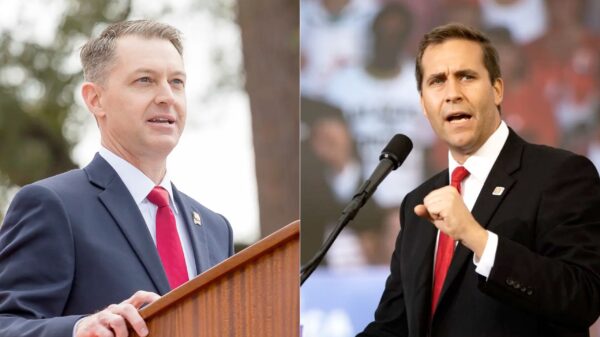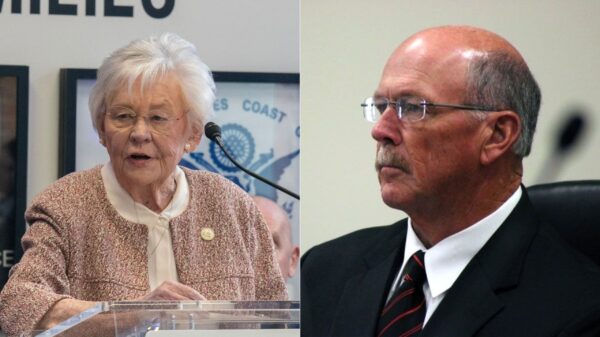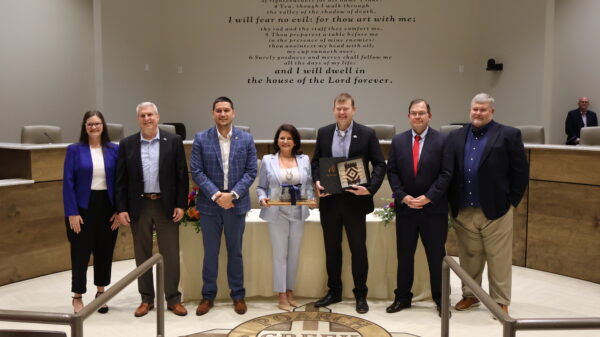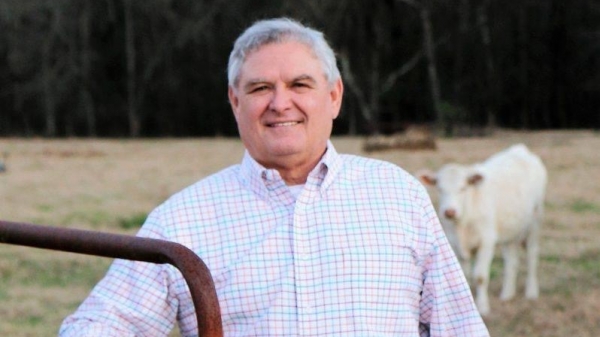When I was a kid, “This Week In Baseball” was one of my favorite TV shows. I loved the highlights, the quirky stories and Mel Allen’s “how ‘bout that” catchphrase.
One of my favorite parts of the show was the “you make the call” segment. There would be video of a weird or complicated play that occurred in a game and viewers would be asked to make the correct ruling from the umpire.
We’re going to play a similar game here. Sort of an Alabama politics edition of “You Make The Call.” Except in this version, there is no correct answer. Because I don’t know the answer.
So, you make the call here.
This week, as I dug through the various campaign finance records related to the now-infamous alleged Georgia Ponzi scheme operated by Edwin Brant Frost, who donated to several Alabama Republicans, I spotted something that seemed a little odd. Actually, I spotted a lot of things that were odd, but this one thing stuck out more than the others.
Alabama’s state auditor, Andrew Sorrell, had worked as a consultant for a candidate running for the state school board.
You don’t see that very … well, ever. I couldn’t think of another example of a statewide elected official working on the campaign of another candidate. Now, I’m not saying it’s never happened. But after 20ish years of covering politics in this state, I’ve never encountered it.
So, I dug a little deeper.
One of the first things I found was a story in 1819 News detailing the fact that Sorrell had played an extensive role in helping his longtime friend, (Francis) Allen Long, in his bid for state school board. Obviously, Sorrell wasn’t hiding this work. And in the story, it mentioned that he was doing this for free. “… never asked for a penny for a consultant fee,” is the way Long described it.
Ah, OK, I thought, just a buddy helping out another buddy.
But something was bothering me. It was how I came about this arrangement in the first place: the company Stable Revolution.
It appeared over and over and over again on Long’s campaign finance reports. How often did it appear, you ask? Try to the tune of $209,000 in three months. For a state school board race.
Ah, I see I have your attention now.
All of the transactions were listed as “advertising,” which usually means a campaign is using a company to place ads with various media outlets. The way that typically works is the company in question spends the bulk of the money it receives from the campaign on the ad placements, but usually keeps a portion for its troubles. (Sorrell says that’s not what happened in this case, but we’ll get to that in detail later.)
I had to know who was running Stable Revolution. I pulled up the Alabama Secretary of State’s website and checked the business records. The only listed agent: Andrew Sorrell.
The company had been registered with the state on the same day it received its first payment from Long’s campaign.
Weird, right?
But now there are other questions. Like: where did a state school board candidate get more than 200 grand to spend in a race?
Well, nearly a quarter of that money came from one political action committee: Alabama Christian Citizens PAC. And its chairperson and treasurer? You’ve probably guessed: Andrew Sorrell.
Just to lay this out in a straight line: Sorrell’s PAC received a couple of major donations. The PAC then sent $50,000 to Long, who had employed Sorrell’s private business, Stable Revolution. Long, on the very same day, spent $70,000 with Stable Revolution.
Long went on to rake in much, much more money. And he spent the majority of it on advertising through Stable Revolution.
I wanted to see how much, if anything, Long had paid Sorrell for his work. To do that, I checked out Sorrell’s annual Statement of Economic Interest for last year. Stable Revolution was not on it.
After I contacted Sorrell about all of this, he responded to say that he made a mistake and would file an amended SOEI that included his only Stable Revolution payment—“a one-time win bonus for my work.” (That amended SOEI was not available online late Wednesday.)
I also asked Sorrell a number of other questions about his work for Long. I made it clear that I was not accusing him of a crime or even anything improper, because I genuinely do not think that any of what I’ve laid out here, aside from the SOEI omission, runs afoul of the law. He referred me to the 1819 News story I mentioned earlier and thanked me for “bringing the oversight about Stable Revolution” to his attention.
The only question he addressed in detail was why there was a need for him to form a company to make the ad buys and not just make the purchases through the campaign.
“Candidates are too busy campaigning to place ads with radio and television stations across the state, so they must rely upon staff, consultants, or volunteers to do it,” Sorrell wrote. “Allen Long has been a close personal friend for 16 years, and I stepped up to do the task.”
I also asked a number of other people around the state—people who deal with campaign finance law on a daily basis—about this ordeal. And guess what? They don’t know if it’s illegal either. In fact, most of them said it’s not.
The only possible way, they said, that it could be illegal under current Alabama law is if Sorrell’s company met the definition of a PAC, according to Alabama code. That would mean Long’s campaign was guilty of making PAC-to-PAC transfers, which are illegal in the state.
That seems rather flimsy. And really, if our laws aren’t good enough to ban the activity itself, I’m not interested in a technicality.
The one thing that pretty much everyone I spoke with could agree on is that this sort of activity should be illegal. Because while there’s no reason to doubt Sorrell when he says he was just helping a friend and not trying to make money, the way he went about it sure seems like a road map for anyone looking to convert campaign dollars into personal cash.
In fact, a source familiar with campaign finance law enforcement told me that state officials are preparing to crack down on the overuse of shady consulting contracts by campaigns. It’s a growing problem, the source said, and one that is now out of control.
For now, though, it all appears to be legal.
Should it be? I don’t know.
You make the call.
















































